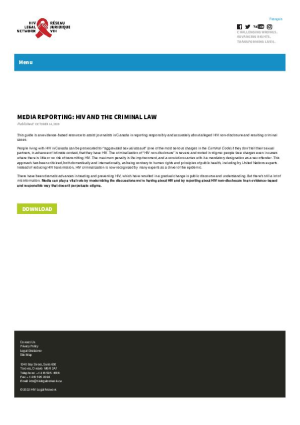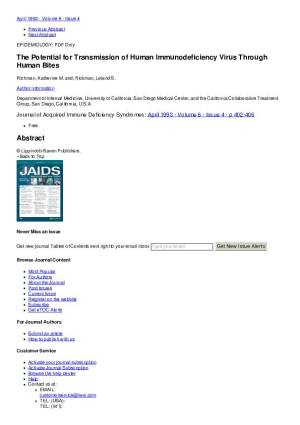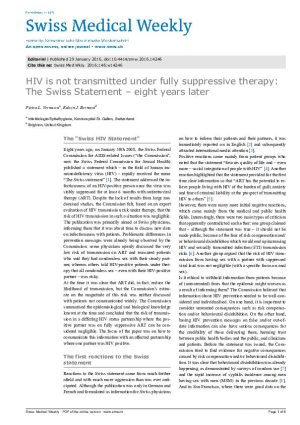Media reporting: HIV and the Criminal Law
This guide is an evidence-based resource to assist journalists in Canada in reporting responsibly and accurately about alleged HIV non-disclosure and resulting criminal cases.
The potential for transmission of human immunodeficiency virus through human bites
Reviews evidence related to the potential for HIV transmission through human bites. Concludes that while biologically possible, transmission remains unlikely, risk is epidemiologically insignificant and as yet, has not been well documented.
HIV is not transmitted under fully suppressive therapy: The Swiss Statement – eight years later
Outlines the background to the Swiss Statement, reactions to the Swiss Statement, and the fact that subsequent research has not undermined its assertions. Includes observations about its legacy, including more honest communication between patients and clinicians, and the development of official guidelines recognising the effectiveness of ART.



